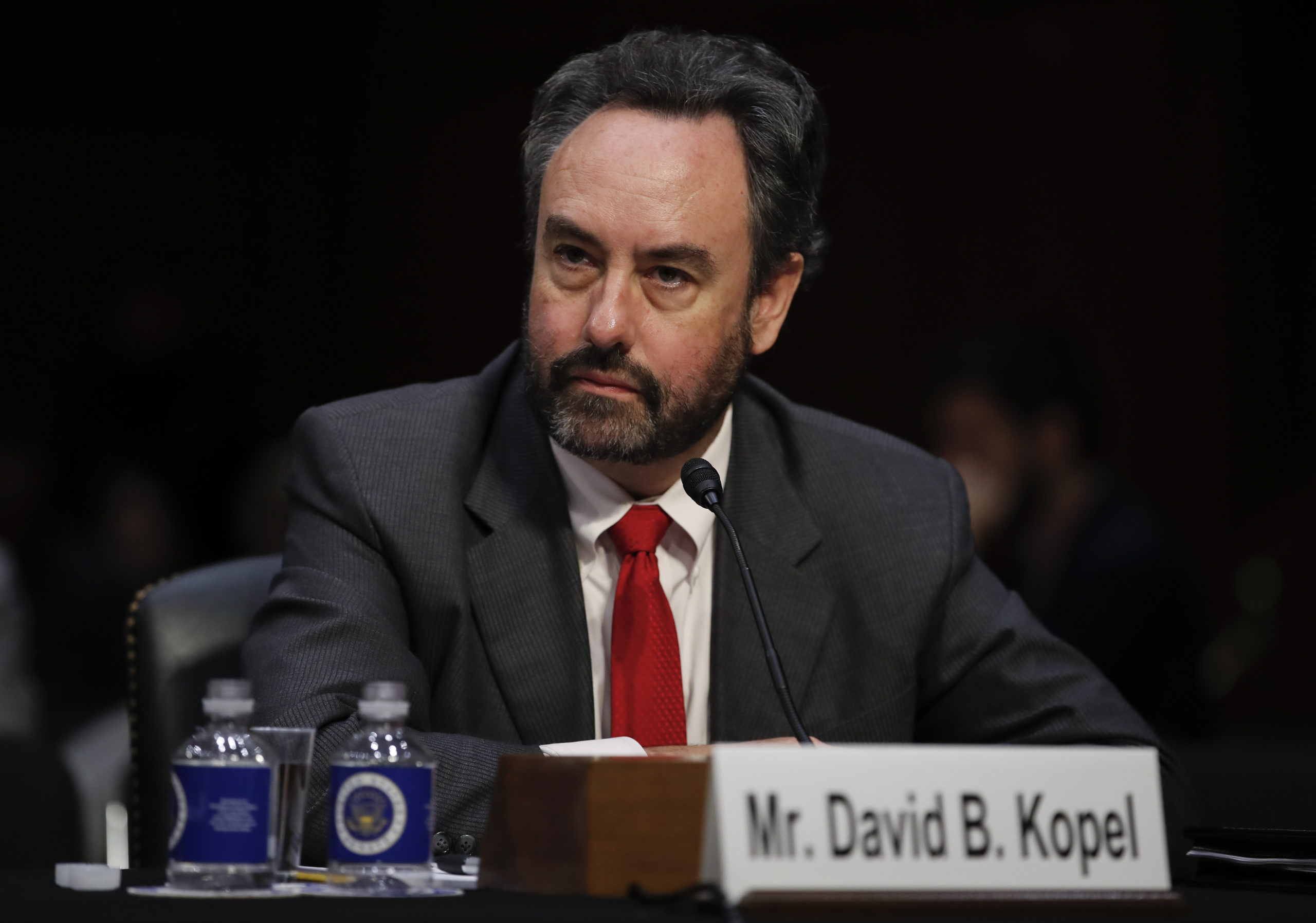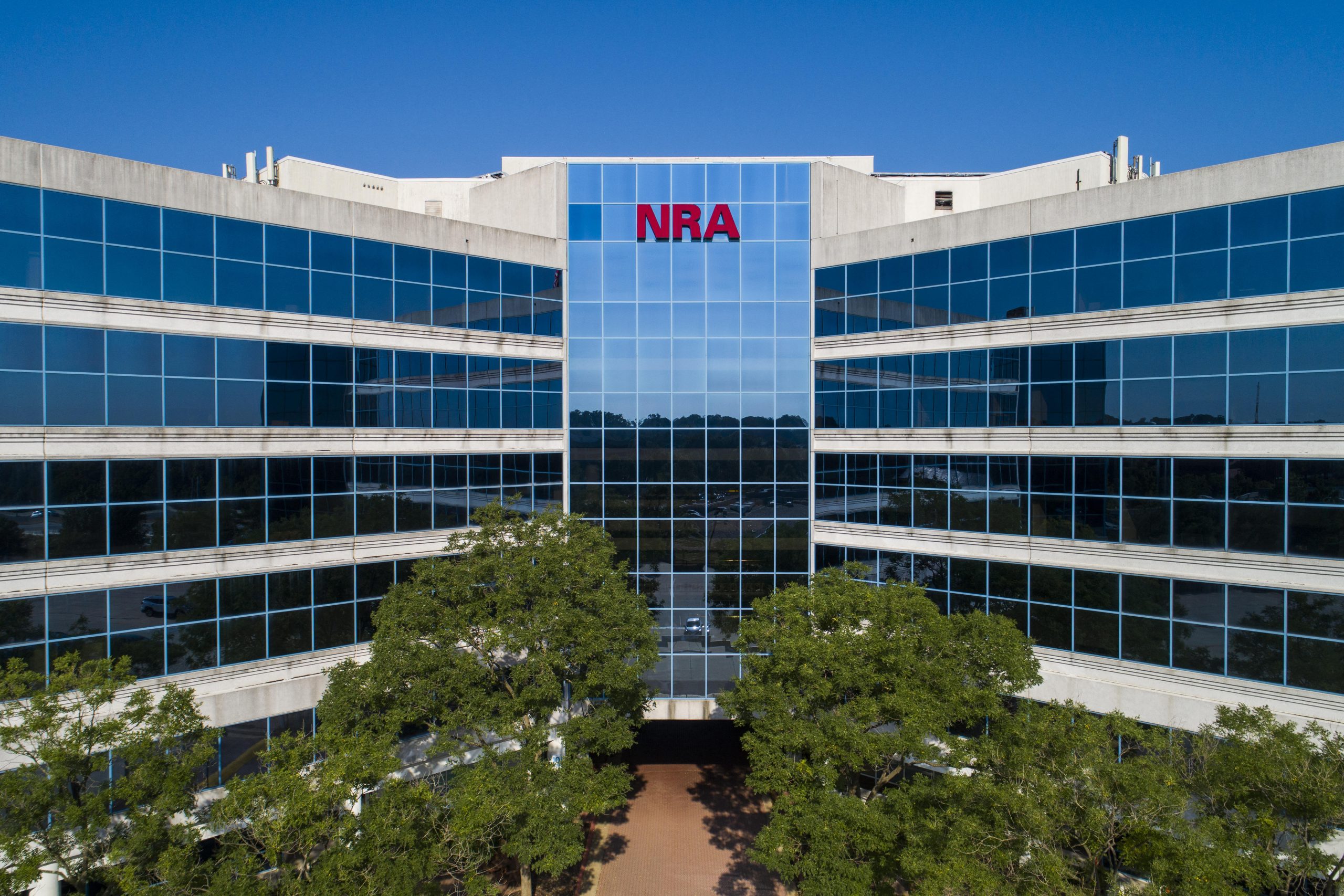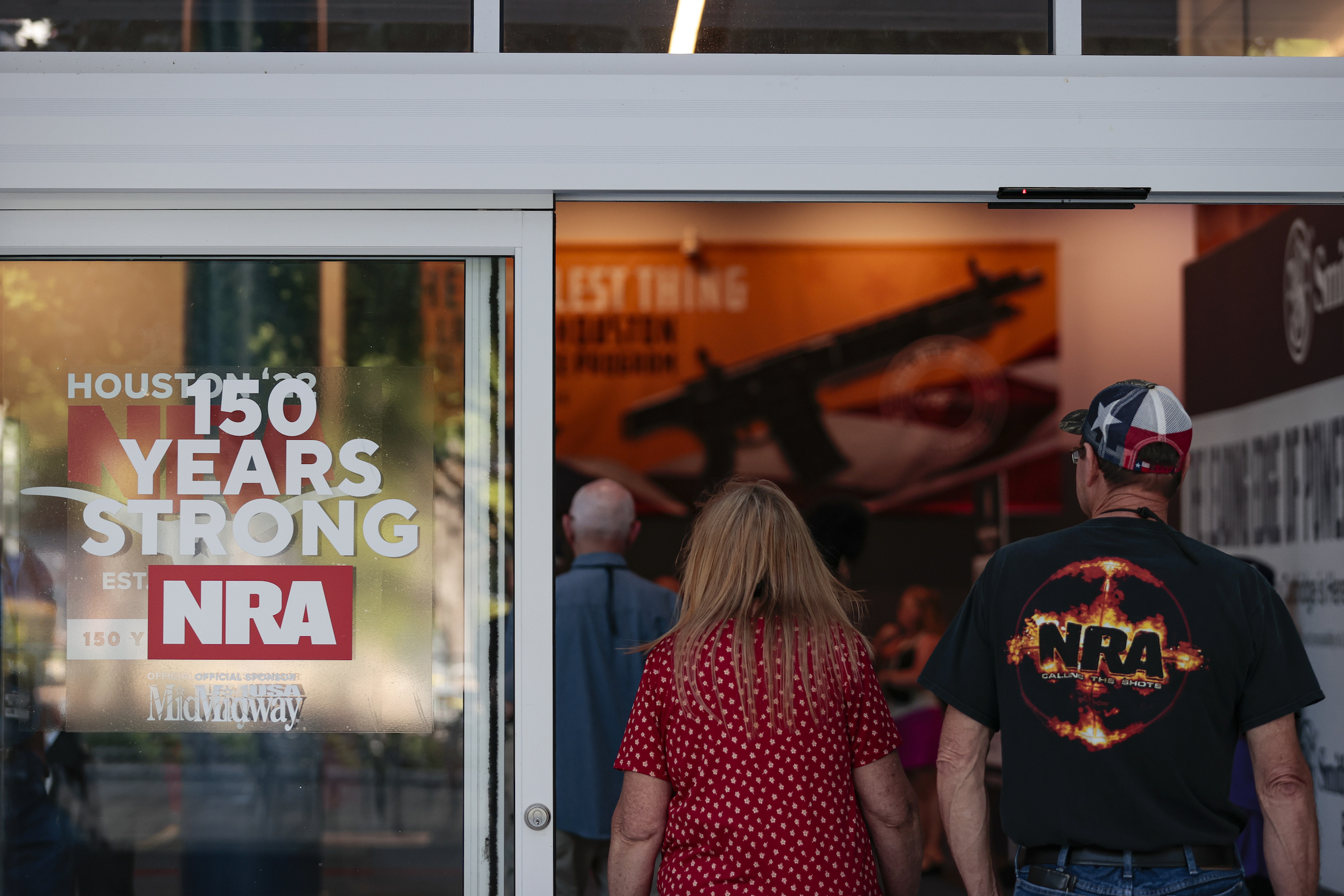The NRA Foundation has paid an attorney and Second Amendment activist to write favorable briefs in Supreme Court cases, suggests a hacked document released on the dark web last week. Since 2019, that attorney has submitted two briefs backing an NRA affiliate in cases before the court, including one involving New York’s gun licensing requirements that is being heard today. The briefs did not disclose the funding, allowing the NRA to buttress its affiliate’s arguments while concealing the effort from judges and the public.
Interest groups, including those fueled by dark money, seek influence at the Supreme Court in a range of ways, one being the production of amicus, or friend-of-the-court, briefs, which often extend and amplify the arguments of one side in a case. Attorneys who author these briefs must disclose whether they’ve taken money from either side to deliver a filing. The briefs that attorney David Kopel, an influential gun rights activist, filed with the court make no such admission.
The disclosure rule is narrowly written, transparency advocates say, and it’s nearly impossible to link money flow to a particular brief, despite growing recognition that interest groups are covertly lobbing a barrage of amicus filings at the Supreme Court. The hacked document — which describes duties Kopel would undertake in exchange for a foundation grant that covers his salary and health benefits — appears to offer a glimpse into how such campaigns are waged.
Paul Collins is a professor of legal studies and political science at the University of Massachusetts Amherst who has studied the role of amicus filings. When we showed Collins the grant application, he said, “Usually when we are investigating links like this they tend to be indirect. This is personally the most direct evidence I have ever seen that an interested party has potentially funded the preparation and submission of amicus briefs.”
A suspected Russian cybercrime crew that security researchers believe is an offshoot of a ransomware gang called Evil Corp is behind the NRA hack. While researchers say a politically motivated attack is unlikely — money typically drives such crews, not ideology — Russian cybercriminals are known to operate with cover from the Kremlin.
The handful of hacked documents that the crew posted to the dark web a week ago included what appears to be a grant application that Kopel made to the NRA Foundation in late 2019 for the 2020/2021 fiscal year. The document states that Kopel made the grant request on behalf of the Independence Institute, a Denver-based libertarian think tank funded by an array of conservative interest groups. It starts with a “Detailed Project Description” that catalogues Kopel’s scholarship, journalism, and media appearances and includes a statement by a Wall Street Journal columnist crediting Kopel with having “single-handedly … changed the gun debate in the United States.” The description goes on to say that Kopel’s amicus briefs and scholarship “has been especially prominent in the last decade,” with 19 Circuit Court of Appeal opinions and the Supreme Court citing his work. It boasts that an amicus brief Kopel had filed just months before in a case that the NRA’s New York State association had brought before the Supreme Court was the most detailed of any presented. Grant impact would be measured by, among other factors, Kopel’s brief writing and citation by judges, the project description states.
The request was for $267,000, with $248,500 earmarked for Kopel’s salary and benefits. The remainder covered books, travel, and additional expenses. The application notes that the total request was unchanged from the 2019/2020 fiscal year, but the salary amount had been bumped up because Kopel had to buy “Obamacare” for his family.
In the case argued today, the New York State Rifle & Pistol Association, an NRA affiliate, seeks to overturn a policy that requires residents to show need in order to get a licence to carry a gun in public. It’s the most consequential gun rights case since 2008, when the court ruled in District of Columbia v Heller that the Second Amendment confers a right to keep a gun in the home for protection.
In July, Kopel was among three attorneys who filed a brief — one of more than 80 submitted for this case — supporting the New York association. Kopel represented the Independence Institute, where he is research director. In the portion of the brief reserved for disclosure, it states that only the entities making the filing funded its “preparation or submission.”
In May 2019, Kopel was counsel of record, again for the Independence Institute, on an amicus brief filed in another Second Amendment case before the Supreme Court. That brief, too, supported the NRA association in New York, which sought to invalidate a ban on New York City gun owners taking their firearms outside the city without a special permit. The court declared the case moot after the city rescinded the restriction. Kopel’s brief — which is singled out in the hacked grant document for its comprehensiveness — stated that no party or entity other than the named friends-of-the-court had funded its “preparation or submission.”
That language is taken from the disclosure rule itself, which requires that authors identify any person who has made a “monetary contribution” to the “preparation or submission” of a brief other than the entities who are making the filing. The rule singles out monetary contributions by any party or attorney involved in the case as meriting disclosure.
The NRA did not respond to calls and written questions about the hacked documents. On Twitter, a spokesperson last week said that the “NRA does not discuss matters relating to its physical or electronic security.” In response to calls and written questions that included whether it disputed the hacked document’s authenticity, Independence Institute president Jon Caldara provided this statement: “The Independence Institute respects the privacy of all our donors and employees. We do not comment on documents allegedly obtained by Russian criminals.”
Caldara wrote that the institute and Kopel choose cases to be involved in, not donors.
After citing the part of the disclosure rule that applies to parties in a case — and omitting the portion that requires funders other than the entities making the filing to be identified — Caldara noted that the NRA’s New York association was a party in the cases in which Kopel filed briefs, not the NRA or its charity arm, the NRA Foundation. “There are thousands of gun clubs and state or local associations that have chosen to have a formal relationship with NRA,” Caldara wrote. “These include the New York State Rifle & Pistol Association. By Supreme Court rules, these organizations are plainly not treated as if they were the NRA itself.”
The association is the NRA’s designated affiliate in New York and litigation partner. Its president is Tom King, an NRA board member. NRA Foundation financial filings identify King as the foundation’s vice president and a trustee. One of the hacked documents, purportedly minutes from a foundation board meeting last month, states that the foundation board unanimously approved an Independence Institute grant at the meeting, but does not offer a dollar amount or other details. King did not immediately respond to a call and emailed questions.
Contact Us
Learn how to contact our reporters securely.
The financial relationship between the NRA, Kopel, and the Independence Institute has been a matter of public record. A review of IRS disclosures shows that the institute is among the NRA Foundation’s most favored grant recipients, having collected more than $1.7 million since 2013, including the amounts given in the hacked grant request. The grant document adds detail, suggesting that foundation money — at least in recent years — has covered Kopel’s salary and health benefits and that the deliverables include NRA-friendly amicus briefs. The foundation’s 2019 IRS filing, the most recent available, shows a grant to the institute of $268,075 and describes its purpose simply as, “2nd Amendment protection, training, safety, education.”
For years, the institute’s annual IRS filing identified Kopel as the organization’s highest paid employee. In 2018, the institute paid him $195,510, according to that year’s filing. Since then, the institute has not named Kopel among its highest paid officers or employees.
Collins, the UMASS professor, said that if the NRA paid Kopel to write amicus briefs, as the hacked grant application suggests, he should have made that disclosure. Omitting that information makes Kopel’s briefs appear independent, he said, when in fact they’re part of an NRA-funded effort to sway the Supreme Court and expand Second Amendment rights.“Those with an interest in advocating for a particular position should not be able to fund, secretly, others to help them advocate for that position,” he said. “Amicus briefs are a form of lobbying.”
Collins said Supreme Court rules don’t identify penalties for nondisclosure. It would be up to the court to issue corrective measures, Collins said, and he is unaware of it ever having done so.
Senator Sheldon Whitehouse, in an article for The Yale Law Journal last month, wrote that amicus briefs, “have become a lobbying tool of choice for right-wing dark-money interests” who coordinate the funding of brief “armadas” to serve their political purposes. “The amicus machine usually goes undetected due to a disclosure regime that flatly fails to show the courts and the parties (and the public) the sources of that coordinated common funding,” he wrote.
Whitehouse, a Rhode Island Democrat, blamed shortcomings in the disclosure rule, which was originally intended to prevent parties from skirting word count limits in their own filings by surreptitiously buying briefs that supplemented their arguments. The Supreme Court Clerk’s Office has interpreted the rule as barring anonymous contributions to amicus briefs, he writes.
The court itself, Whitehouse stated, has accepted a reading of “preparing or submitting” that is “so narrow as to encompass only the costs of formatting, printing, and delivering the specific brief in the specific case at issue. This reading ignores the reality that ‘money is fungible,’ allowing an amicus filer to avoid disclosure altogether, even if its funders include a party in interest to the case. If a party in interest gives an amicus filer a million dollars and approves the filed brief, and the brief is designed to benefit that donor, none of this needs to be disclosed if the filing entity has a few thousand dollars on hand to pay for printing, binding, and service.”
At his urging and after a referral from the Supreme Court, Whitehouse wrote, the federal Judicial Conference Committee on Rules of Practice and Procedure is examining the issue.
Champe Barton contributed to this story.


